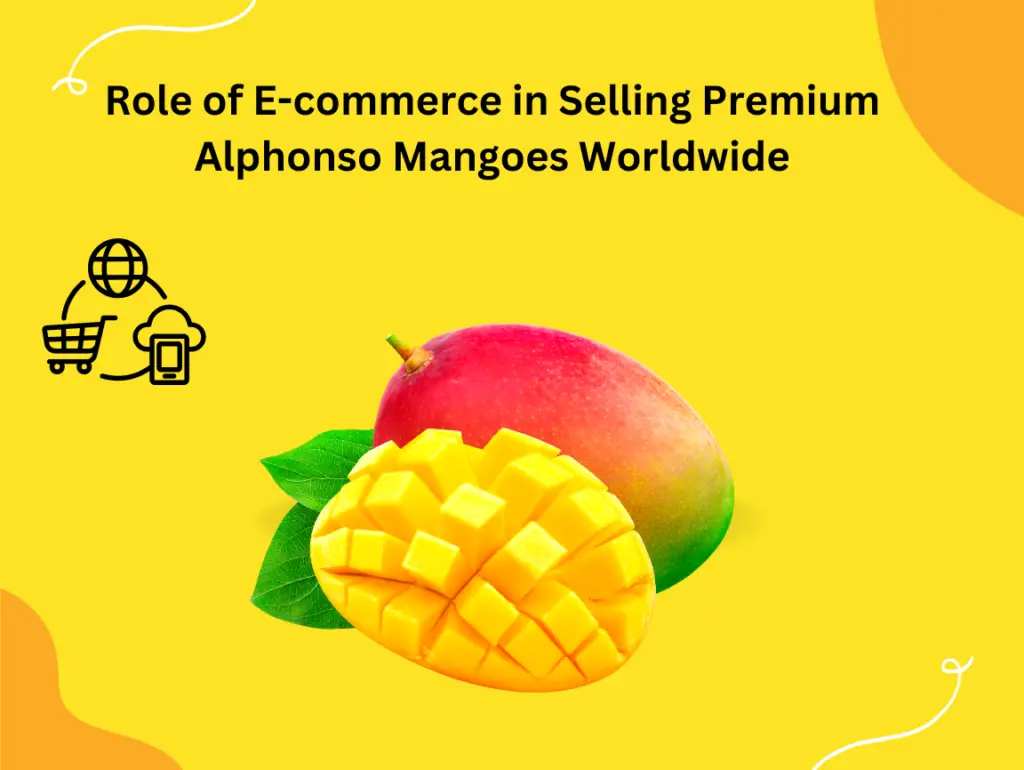Alphonso mangoes, also known as “Hapus,” are often referred to as the king of mangoes due to their rich flavor, vibrant color, and smooth texture. Grown primarily in the Ratnagiri, Devgad, and Konkan regions of India, Alphonso mangoes enjoy an elite status not just in the domestic market but also among mango enthusiasts across the globe. Traditionally, their sale was limited to local markets or through physical distributors. However, with the rise of e-commerce, the premium Alphonso mango has broken geographical barriers and reached international consumers, making it a global fruit phenomenon.
Growing Demand for Premium Alphonso Mangoes
As consumers become more conscious of food quality and origin, there is a rising demand for authentic, naturally ripened, and chemical-free fruits. Alphonso mangoes meet these expectations with their superior taste and aroma. Their exclusivity, short harvesting season (typically from March to June), and limited supply add to their appeal, turning them into a seasonal luxury item. This demand isn’t confined to India alone — Non-Resident Indians (NRIs), food connoisseurs, and global fruit lovers across the United States, Europe, Middle East, and Southeast Asia eagerly await the Alphonso season every year.
But how are these delicate fruits reaching customers thousands of kilometers away in top condition? The answer lies in the smart integration of e-commerce platforms with logistics, packaging innovation, and digital marketing.
E-commerce: The Game Changer
E-commerce has completely transformed how premium Alphonso mangoes are marketed and sold across the world. From orchard to doorstep, digital platforms are enabling farmers, aggregators, and exporters to tap into global markets directly.
1. Direct-to-Consumer (D2C) Model
Many farmers and orchard owners now run their own websites or collaborate with fruit marketplaces to sell Alphonso mangoes directly to consumers. This D2C approach ensures:
- Better pricing for farmers by cutting out middlemen.
- Authenticity for consumers, who can trace the origin of their fruit.
- Brand building, allowing farmers to establish trust and loyalty with customers abroad.
2. Global Reach with Local Experience
E-commerce enables Indian mango exporters to cater to niche audiences in foreign countries. Platforms like Amazon, Flipkart, BigBasket (for domestic sales), and international portals such as Etsy and specialized grocery e-commerce stores allow listings of Alphonso mangoes with detailed product descriptions, certifications, and images.
Moreover, the rise of hyperlocal delivery services in foreign markets, such as Instacart in the US or Ocado in the UK, allows Indian exporters to collaborate with local distribution partners to ensure quicker deliveries within these countries.
3. Seamless International Shipping and Cold Chain Logistics
Thanks to e-commerce platforms that partner with advanced logistics providers, shipping perishable products like mangoes overseas is now faster and safer. Premium packaging solutions like vacuum sealing, pulp-protecting foam nets, and temperature-controlled boxes preserve the fruit’s freshness during transit.
Air cargo partnerships and express delivery services ensure that the mangoes reach customers within 3–5 days of harvest. Real-time tracking and notifications keep customers informed, enhancing trust and satisfaction.
4. Digital Payments and Transparent Transactions
Online transactions remove the hassle of currency exchange and bank transfers. Through integrated payment gateways that accept credit cards, PayPal, UPI, and even crypto in some cases, buying Alphonso mangoes from anywhere in the world is now seamless.
Moreover, transparent billing, invoicing, and refund policies promote confidence, especially in international buyers who are often cautious while ordering fresh produce from abroad.
5. Marketing and Customer Engagement
Social media and digital marketing play a huge role in increasing visibility. Sellers use platforms like Instagram, Facebook, Google Ads, and YouTube to showcase:
- Behind-the-scenes glimpses from the mango farms.
- Testimonials from happy customers.
- Limited-time offers and flash sales during the harvest season.
Influencer marketing, storytelling, and region-specific promotions (e.g., “Gift Premium Alphonso to Your Family This Eid”) help connect emotionally with diverse global audiences. Customer engagement through WhatsApp and chatbots also enables real-time support, enhancing the buyer experience.
6. Subscription Models and Gifting Options
E-commerce also allows for subscription models where customers can pre-book boxes of Alphonso mangoes to be delivered at intervals during the season. This is especially popular with NRIs and corporate clients.
Similarly, gift-box packaging, personalized notes, and occasion-based bundling (e.g., Mother’s Day mango gift packs) are emerging trends that e-commerce makes possible.
Benefits to Farmers and Exporters
For farmers and exporters, the e-commerce revolution means:
- Wider profit margins by reaching high-paying international markets.
- Brand identity and trust through digital storytelling and customer reviews.
- Real-time feedback and analytics, helping them optimize supply based on demand trends.
- Data collection, which assists in predicting customer preferences and planning better for future seasons.
Moreover, farmers who embrace e-commerce enjoy better negotiation power, access to export certifications, and integration with government schemes promoting agricultural exports like APEDA (Agricultural and Processed Food Products Export Development Authority).
Challenges and Solutions
Despite its many advantages, selling premium Alphonso mangoes online also presents challenges:
- Perishability: Mangoes have a short shelf life. Poor logistics can lead to spoilage.
Solution: Cold chain integration and same-day/next-day dispatches are crucial. - Counterfeiting: Fake Alphonso mangoes are often sold online.
Solution: QR code-based authenticity, GI tagging (Geographical Indication), and verified seller badges help maintain integrity. - Regulatory and Customs Barriers: Different countries have varying rules on fruit imports.
Solution: Experienced export partners and platforms like Amazon Global Selling assist in navigating compliance. - High Shipping Costs: Especially for smaller orders.
Solution: Bulk deals, local warehousing in foreign markets, or charging premium prices to offset costs.
Future Trends
Looking ahead, the e-commerce-driven Alphonso mango market is poised to grow further, with several exciting developments:
- Blockchain for traceability: Tracking mangoes from farm to fork.
- AI-based demand forecasting: To optimize harvest and delivery cycles.
- Drone-based orchard monitoring: Ensuring consistent quality.
- Augmented reality (AR): Giving customers a virtual tour of mango orchards before they buy.
With growing health consciousness, eco-conscious packaging, and digital payment penetration, the foundation is set for sustained growth in the global Alphonso mango market.
Conclusion
E-commerce has unlocked the global potential of premium Alphonso mangoes like never before. What was once a regional fruit now graces the dining tables of homes from New York to Dubai, thanks to seamless digital platforms, advanced logistics, and savvy marketing strategies. For farmers, it represents empowerment and profitability. For consumers, it offers a delightful taste of India’s heritage delivered to their doorstep.
As technology continues to evolve, and as consumers demand more transparency and quality in what they eat, the role of e-commerce will only become more pivotal in shaping the journey of Alphonso mangoes from the sun-drenched orchards of Ratnagiri to the fruit bowls of the world.
Contact Shreevali Agro® for premium quality Alphonso mangoes.





